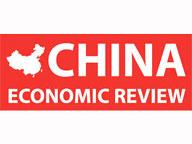Faculty News
—
Prof. Russell Winer on product placement on TV
—

Excerpt from BBC -- "I think Americans have accepted that when you watch a TV program, you're going to see somebody selling something in the context of the TV show. There's no doubt about that...with the number of digital video recorders that are here and the penetration rate around 50%, advertisers are looking for nontraditional ways of trying to show their brands being used in context because people are skipping ads, and that's why the market, in fact, is growing here rapidly: because of the ad-skipping that's going on."
Faculty News
—

Excerpt from BBC -- "I think Americans have accepted that when you watch a TV program, you're going to see somebody selling something in the context of the TV show. There's no doubt about that...with the number of digital video recorders that are here and the penetration rate around 50%, advertisers are looking for nontraditional ways of trying to show their brands being used in context because people are skipping ads, and that's why the market, in fact, is growing here rapidly: because of the ad-skipping that's going on."


















